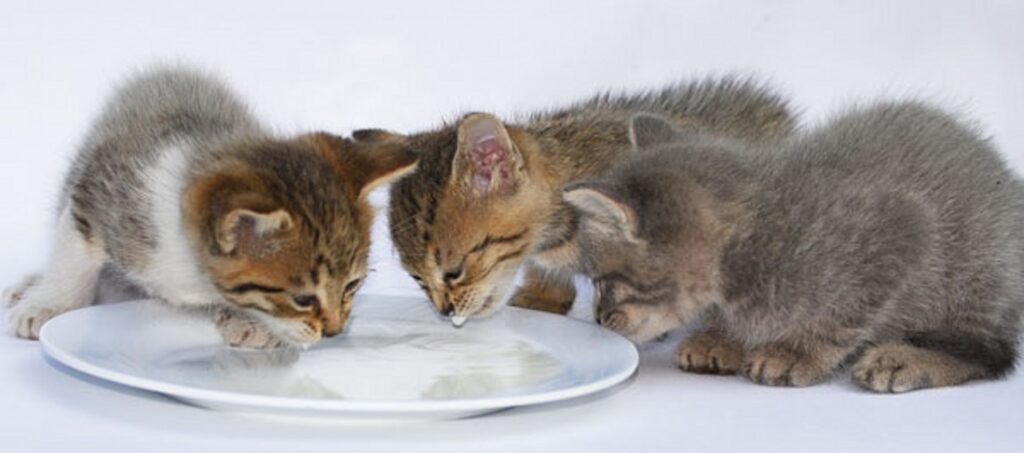Weaning kittens is a crucial stage in their development, a delicate transition from the mother’s milk to solid food. While a natural process, it’s fraught with potential pitfalls that can lead to health complications and even death if not carefully managed. Understanding the common challenges and how to prevent them is key to ensuring your kittens grow into healthy, happy cats. This guide focuses on the must-avoid problems during this critical period.
Timing is Everything: A Critical Aspect of Weaning Kittens
Successfully weaning kittens hinges on proper timing. Premature weaning can lead to severe health problems, as kittens’ digestive systems aren’t yet equipped to handle solid food. Ideally, kittens should begin exploring solid food around three to four weeks of age, with the mother cat still providing the majority of their nutritional needs. Complete weaning should only occur between six to eight weeks old, allowing for a gradual transition. Rushing this process can result in malnutrition, weakened immune systems, and increased susceptibility to illness. Observe your kittens closely; their interest in their mother’s food is a good indicator of their readiness.
Recognizing Signs of Weaning Problems: Early Intervention is Key
Recognizing potential issues early is crucial for successful intervention. Signs of problems can include slow growth, lethargy, diarrhea, vomiting, or persistent crying. Fecal consistency should be firm, not watery or loose. A kitten’s weight should increase steadily. Any deviation from this can indicate an issue that requires immediate veterinary attention. Don’t hesitate to consult your vet if you notice anything concerning – early intervention can often prevent serious complications.
Nutrition: The Cornerstone of Successful Weaning Kittens
Proper nutrition is paramount during weaning. Kitten formula, specifically designed to mimic mother’s milk, is vital if the mother cat is unavailable or unable to provide sufficient milk. These specially formulated milks provide essential nutrients and antibodies vital for development. Gradually introduce wet kitten food, starting with a high-quality pate or gruel consistency to ease transition. Gradually increase the solid food proportion while reducing formula. Avoid dry kibble at this early stage; it’s too difficult for young kittens to digest.
Avoiding Common Mistakes During Weaning Kittens
Several common mistakes can sabotage the weaning process. One frequent error is introducing solid food too early. Kittens’ digestive systems are still immature and unprepared to digest solid food before approximately 3 weeks, leading to digestive upset and potential malnutrition. Another mistake is a sudden switch from milk to solid food; this abrupt change shocks their delicate systems and often causes diarrhea.
Furthermore, inadequate monitoring is a serious issue. Kittens need constant supervision, particularly during mealtimes. Ensure each kitten is eating adequately; this is especially crucial in larger litters where competition can leave some kittens with insufficient food. If a kitten isn’t thriving, separate feeding sessions may be necessary.
Maintaining Hygiene: Preventing Infectious Diseases
Maintaining a clean and hygienic environment is essential to prevent the spread of infections. Kittens’ immune systems are still developing, making them highly vulnerable. Regularly clean food and water bowls; sanitize feeding areas and litter boxes frequently. Poor hygiene can lead to diarrhea, vomiting, and other infectious diseases. Always wash your hands thoroughly after handling kittens and their supplies.
Supplements and Medications: When Professional Help is Needed
In certain cases, supplementary nutrients or medication may become necessary. For example, kittens with diagnosed health conditions like diarrhea may require medication to help their recovery. Similarly, some kittens might benefit from kitten supplements to ensure they receive crucial nutrients in sufficient quantities. However, it’s vital that administering any medications or supplements only occurs under the guidance of a veterinarian. Never self-medicate your kitten.
Weaning Kittens: Signs of Success and Continued Care
Successful weaning is characterized by healthy weight gain, bright eyes, playful behavior, and firm, well-formed stools. While weaning is a significant milestone, continued care is essential to ensure healthy growth. Gradual introductions of new foods, maintaining a clean environment, and regular veterinary check-ups are vital even after weaning is complete. Observing your kitten’s behavior, appetite, and overall health remains crucial for several months following weaning.
By proactively addressing the potential pitfalls and focusing on proper nutrition, hygiene, and timing, you significantly improve the odds of a healthy and smooth transition for your kittens. Always remember, if you have any doubts or concerns, your veterinarian is the best resource to help guide you through this critical stage. Early intervention often makes the difference between a prosperous transition and a potentially serious health crisis. Your vigilance and attention during weaning are investments in your kittens’ futures, leading to healthy, thriving cats.

